5 Steps To Starting Your Own Local Marketing Agency
Thanks to the explosion of all things digital, starting your own marketing agency no longer requires the same kind of capital and connections that you would have needed decades ago. But that doesn’t mean it’s easy – a lower barrier of entry means more competition, and that means you need to work harder and smarter if you want to stand out.
As someone unfamiliar with local marketing, there are a lot of ways that you can go wrong, even just starting your agency. We’re here to walk you through the five crucial steps of starting your own local marketing agency. Whether you’re having trouble setting reasonable goals and expectations for your clients, or you need to work on retaining those clients, this guide will help you set the foundation for your success.
This isn’t the definitive guide to building your marketing agency from the ground up. After all, your path and circumstances are almost wholly unique to your agency. This is simply an easy to follow blueprint, and it’s completely up to you to adapt these strategies into your business in a way that works best for you.
Stage #0: Setting The Foundations
Before you can even think about starting your own local marketing agency, you need to be sure that this is something you want and can see through to the end. At this stage, you should familiarize yourself with what you’ll be doing – local SEO – and dip your toes before diving in.
Learn About SEO
If you have knowledge and/or experience in the industry, it’s going to be a lot easier to get your local marketing business off the ground. Your ability and willingness to learn are particularly important in local SEO since search engine optimization is constantly changing. You need to stay on top of it if your campaigns are going to be successful and drive the results you want.
This doesn’t mean that you have to be an expert. It does mean that you need to at least familiarize yourself with the foundational concepts of SEO. If you can understand the basics, then you’ll know why specific practices garner specific results.
Much about search engine optimization is far easier to learn using a hands on approach. And because it is easy and even preferential to learn certain aspects of SEO on the job, you don’t need to worry about being a relative newcomer to the industry. If you think about it, every successful SEO professional/agency today had to start somewhere! You may have a slower start than others, but this lets you build your skills and figure out the approaches that work best for you.
Work As A Contractor First
Being your own boss and owning a local marketing agency that makes a lot of money are exciting prospects; but jumping in head first might leave you unprepared for the challenges ahead. Starting your own business is always a big risk, but there are ways that you can ease yourself into it, taking things one step at a time.
Try your hand at being an independent or freelance contractor first before establishing your own company. This will give you a taste of agency work at a much smaller scale. You’ll have to do your own prospecting, pitching, invoicing, accounting, and of course, marketing. This will teach you the foundations of running a local SEO business without the significant risks of actually starting one.
Plus, working as a contractor will help you build valuable connections. You could get referrals from past clients or even take those clients with you as you transition from contractor to your own agency. And since you already have some experience, the client onboarding process will be much more streamlined.
Think of this as a litmus test – if you can deliver results, make clients happy, and manage your time well as a contractor, then you just might be ready to start your own SEO company.
Don’t Quit Your Job… Yet
Rushing into it is one of the biggest mistakes you can make when you’re building a business. You don’t want to invest everything you have into your marketing agency, only to have it fail down the line because you weren’t fully prepared. So until you can rely on it as a source of income – or until you’ve saved enough to keep the agency afloat while you establish yourself – keep your day job and make SEO your side hustle.
In most cases, it’s easier to talk about building an empire in your spare time than it is to make that happen. You’ll need the mental dexterity to juggle two jobs, on top of the responsibilities you may already have in your life. However, it’s a great practice in time management that can easily translate to a valuable skill when you make the move from average worker to entrepreneur.
Plus, having a steady income stream while you’re building your business in your spare time will take away some of the exorbitant pressure that new entrepreneurs are prone to facing. You won’t feel forced to take on clients you don’t want, and you can take your time learning the ropes. When you aren’t pressured to make money and deliver results, you’ll actually end up putting more thought into your efforts and creating better relationships and results because of it.

Stage #1: Preparing Your Business Plan
If we compare starting a local marketing agency to building a house, then the previous stage would be laying down the foundations. This stage is all about building the “frame” that will guide the rest of your decision-making.
In this section, we’ll talk about the prep work that needs to be done before you open for business. We’re not going to go into detail about how to create a formal business plan; in fact, you don’t need a formal business plan at all. It doesn’t matter if it’s just written in your notebook or even a bunch of post-it notes, as long as you have the most important elements figured out.
Set SMART Goals
If you want to have a successful local marketing agency, you first need to define what success looks like to you. Setting your goals at the beginning will guide your business in a specific direction, which will make it easier to create an action plan later on.
A goal can be anything you want, from a target number of clients to monthly revenue. When you’re creating goals, it’s important to keep the S.M.A.R.T. framework in mind:
- Specific: Goals should be unambiguous, clear, and specific. Avoid broad objectives like “to be the best” or “make money”. Be explicit about what you’re targeting and who is involved, otherwise, you won’t know where to start. For example, “improve client retention by 10%” is a specific goal.
- Measurable: Marketing is all about KPIs, and it’s the same for your agency. Measurable goals allow you to monitor your progress and make sure you’re on the right track. If you can’t measure your goals, then how will you know you’ve achieved it? For example, “hit $5,000 a month in revenue” is a goal that you can easily track month over month.
- Aspirational: Sometimes, the “A” in S.M.A.R.T. means “achievable”, but making them aspirational is a great way to speed up your growth. Think of the saying, “Shoot for the moon. Even if you miss, you’ll land among the stars.” If you hit it, then great! You’ve exceeded even your own expectations. But if you don’t (or take a longer time to get there), you’ll still be happy with your progress.
- Realistic: Even if your goals are aspirational, they should still be within the realm of possibility. What are your current capabilities, and how can you realistically expect to grow in the coming months? If you’re just starting, then a million-dollar profit target might not be achievable (at least within the first few years).
- Time-based: A deadline gives you the incentive to move forward. You should always set a deadline for your goals, whether you want to achieve it by next week or by next year. This ties in with “realistic” – some goals may not be realistic within a certain time frame, but they’re entirely possible in the long run.
Good S.M.A.R.T. goals for a local marketing agency could be:
- Acquire 1,000 leads every month by the end of the year
- Grow average monthly revenue to $5,000 a month by June
- Gain 10 regular clients in the dental niche in three months
Niche It Down
While it might seem counterintuitive to limit your client pool, sticking to a niche benefits your business in many ways. It allows you to narrow down your target audience and focus your messaging to cater to them. After all, it’s easier to understand one specific demographic rather than trying to appeal to everyone. This makes your marketing efforts much more successful, and you’ll be able to rake in more profits as a result.
Niching down allows you to build expertise in a particular industry. Here we’re going for depth over breadth. Think about it this way: would you rather be able to provide decent SEO services to a wide range of industries, or would you rather be an expert niche SEO in a chosen industry? Think about which one is going to bring you more money. Clients are more likely to seek out the best agency in their field who can deliver results over an agency that dabbles in a bit of everything. And when you have a blueprint for how to rank a business in a particular niche, you’ll have a much easier time determining the needs of your next client and executing the right strategies.
Think about who you want to cater to. Picking a niche means that you’re automatically excluding a ton of business, so try to focus on high-value niches like the dental, legal, and medical industries. But even lower-value niches can be profitable if you don’t have a lot of competition, so take that into consideration and think outside the box.
Decide On Your Branding
Once you understand the market you want to target, you can start building your brand identity. Don’t take this step lightly! Your branding is the very first thing that clients will notice about you; it tells potential clients who you are, what you stand for, and why you’re the best option for helping their business to grow.
Everything from your agency name to your logo to your “brand voice” will be determined by the type of clients that you want to do business with. How you market to a law firm will be vastly different than how you market to educational institutes, dentists, or insurance agents.
When you’re working on your branding, it’s also time to think about what you’ll offer to clients that will set your agency apart from the thousands of digital marketing agencies out there. Do you offer competitive prices? Are you using cutting edge technology? Do you have unique or difficult to find services? Are you taking non-traditional approaches to SEO? Whatever you have that makes you different, emphasize that in your branding.
Your brand won’t be able to cater to everyone, but that’s okay. In fact, that means your branding works. Yes, you’ll lose the business of folks that don’t like your brand, just like you’ll lose brands that don’t fall into your specialty niche. But those that do like your brand will be more loyal and profitable clients in the long run.
Figure Out Your Starting Capital
Obviously, starting any business requires resources, and local marketing agencies are no exception. You’ll need money to buy equipment, hire staff, and advertise your agency. Not to mention all the (expensive) tools you’ll need to do your job as an SEO professional.
Despite what many people think, it doesn’t take a lot of money to get a marketing business up and running. If you’re starting out as a one-man agency, you automatically save on hiring costs and salaries, office space, and equipment; all of which allows you to save up faster to afford additional staff, equipment, and tools to make your job smoother and more efficient.
You don’t need to spend thousands a month on industry tools either – choose those that serve more than a single purpose and give you the most bang for your buck. There are many all-in-one dashboards and even free online tools on the market for you to take advantage of while building your agency.
If you aren’t comfortable building yourself up from a one man show and you want to have more capital before you start, consider bringing on investors or partners. The upside is that you’ll get an immediate boost in funds and you may be able to delegate tasks to your business partners to lighten your own workload. The downside is that you’ll also have to split your profits and the control of your agency with your partners.

Stage #2: Starting Up
Our foundation of objectives, branding, and funding has been laid and the next step is to turn your concept into a real business. In this section, we’re going to talk about the more practical aspects of running an agency. We’ll talk about pricing, hiring, and setting the groundwork for your marketing strategy.
Gather Tools
An amazing search optimization strategy is nothing if you don’t have the tools to implement it. There are numerous local SEO tools available, and each has a specific purpose. Some can help you schedule and track client meetings and notes. Some let you scrape major databases for contact info. Yet others let you monitor keyword trends, your client’s rankings, or competitor link building profiles. Then there are major programs like Moz or Ahrefs that combine a ton of tools into a single dashboard that you can access for a monthly subscription fee.
All tools – at least the most valuable ones – will come with a cost. Always conduct a cost-benefit analysis when choosing the tools to include in your arsenal. Zeroing in on the tools that will make your job most efficient for the lowest cost allows you to cut your overhead early on when your agency is still growing. For example, if you spend several hours a day answering emails and scheduling pitches, you’re wasting a lot of time that could be spent closing sales or doing actual SEO. A tool that automates this part of the process could significantly boost your productivity and, therefore, your profits.

Set A Price
How high you price your services will impact two aspects of your business:
- How much work you need to take on to make a profit
- How much money you can earn
No one can tell you how to price your services since that will depend on your market, expertise, and many other factors unique to your agency. But we can give you a few pointers that can help you to decide on the right pricing for you. We also recommend you read our post on How to Price Your Local SEO Services to Learn What to Charge for Local SEO.
When you’re getting started, you might feel like you can’t charge too much because of a lack of reputation and expertise. In 2018, freelance SEO contractors charged an average of $75 per hour (or <$500 per month), while agencies were charging around $100 per hour (or $500-$1,000 per month). These are good rates to start with, but you’ll need to rethink your pricing strategy once you start targeting a six-figure monthly revenue.
What you charge your clients reflects the value that you put on your work. If you price your services low, you’ll get a lot of clients, but you probably won’t get those coveted big-ticket brands. You’ll also have to work two or three times harder to make a decent living if you’re pricing too low. Maybe you’ll have more clients, but that also means you’ll have more work to do.
Many new SEO companies are scared to charge high rates right out of the gate because it prices many clients out. But you don’t need to look at this exclusivity like a bad thing – people naturally associate “expensive” with “high quality”. By creating higher prices, you’re signaling that you have higher quality goods or services that are worth the money. As a bonus, you’ll be able to take on less work for a reasonable rate and filter out the businesses that you might not want to work with anyway.
Aside from price range, you’ll also have to consider how you’ll charge your clients. Below are the three most common billing models in the marketing industry:

Hourly
An hourly pricing model is an industry-standard for consultants and freelancers, but it’s not for everyone. We’d recommend this if you plan on doing a lot of one-on-one’s with the client, or if you’re only doing simple services for them. Charging by the hour allows you to estimate your monthly earnings based on how much work you plan to put in. But the number of hours that you plan to work might not be the hours you actually end up working. Your hours can fluctuate from client to client, week to week, or campaign to campaign. You’ll want to log all of your hours (try a time-tracking tool Toggl) in order to justify the final invoice you send to the client. This pricing model may cause tension if the client feels that they’ve been billed for more than your efforts are worth.

The monthly flat rate retainer takes all the guesswork out of your pricing for both yourself and the client. You’ll know exactly what to expect for payment at the end of the month without any fuss because the client will know upfront what they will be paying you. Since most clients will need a long-term contract for their SEO, you’ll be able to forecast your cash flow/earnings for the next six to twelve months for each client.
Even though you’re charging on a monthly basis, you still need to create a figure based on how much work you think you’ll need to do. If you underestimate the work or timeframe, or the client demands changes, you’ll have to renegotiate the contract so that the new rate matches the client’s expectations while addressing the additional work you’ll need to put in to meet those expectations.

Percentage Of Spend
If you’re worried about the inflexibility of monthly retainers, then the percentage of spend is a possible alternative. Instead of charging a flat fee for a set of services, you charge a percentage of the client’s marketing spend. So if you’re charging 20% on your services, you’ll earn $1,000 for every $5,000 the client spends.
This is great for scaling, but it’s hard for new local marketing agencies to turn a profit this way. Larger clients mean more money, but you may not have the expertise or authority to pull that kind of business just yet. And if something changes in the client’s company, your monthly earnings are likely to be affected as well.
If the client is looking to scale with you, the best compromise is to use both a flat monthly fee and a percentage pricing model. Charge for basic services through your retainer, then add a percentage of spend on top of this for growth and more custom SEO.
Hire Staff
At the start of your business venture, you might be able to do everything yourself. But as your business grows, you’ll need extra help if you want to take on additional clients or bigger projects. If you want to earn six figures every month, hiring employees is practically inevitable.
The question isn’t, “Should I hire someone?” It’s when. You don’t want to hire too early on because it could drain your funds unnecessarily. But hiring too late could result in burning out from taking on too much work or having to turn away potential clients.
Do as much of the work as possible at the beginning to maximize your profits. But as more projects roll in, you might want to hire a freelancer or two for specific projects or tasks. Then, slowly move up to a couple of part-time employees. Finally, when your income is stable and you’ve built up a reliable list of clients, you can hire your first full-time employee.
This approach lets you scale up slowly while minimizing your overhead costs. You can even plot your hiring schedule based on specific milestones such as annual revenue. For example, you could peg $60,000 as your first milestone before you take on a freelancer; $100,000 before you take on a part-time employee; and $120,000 before you hire a full-timer.
At the very least, you should have a virtual assistant who does most of the menial grunt work while you tackle the nitty-gritty of local marketing. You should also invest in an accountant since taxes are a complicated but essential part of doing business.
Establish An Online Presence
You’re in digital marketing, you need a website. Hire a web developer to build your business site, or learn how to code a simple one on your own. Each of these approaches has merit for different reasons. Building your own site means you’ll know everything about it and be able to troubleshoot issues on your own. Outsourcing your website build will give you more time to focus on other things and might even give you a resource for local website builds for your own clients.
While aesthetics are important, a good-looking website can only get you so far. Your priority should be function over fashion – it needs to be intuitive and easy to navigate. And there has to be a clear customer funnel if you want to drive conversions. Even a WordPress template website can generate a lot of income if you’re strategic about it.
Of course, as you begin building a reputation and bringing in bigger clients, you’ll want to upgrade your design as well. It doesn’t have to be fancy, as long as the design is clean and professional.

Stage #3: Marketing Yourself
Gone are the days that you needed a TV commercial, radio jingle, or newspaper ad placement to get the word out about your business. These days, it’s all about the online space – and as a digital marketer, it makes sense to promote yourself on the very platforms you work with.
In this section, we’ll talk about how you can market yourself online and begin building a client base.
Build A Portfolio
The proof is in the pudding; or in the portfolio in this case. Portfolios and case studies are the easiest way to tell clients what type of work they can expect from you. If you can demonstrate that you improved rankings and increased website traffic for one brand in a particular niche, then future clients will be more enthusiastic about working with you.
In fact, you’ll find that most clients are hesitant to sign a paid contract without proof that you can drive results. In this case, a strong portfolio is essential if you want to attract clients, particularly higher end ones.
If you’ve previously worked in an agency or as a freelancer, then you probably already have something to draw from. Your case studies should incorporate your client’s goals and how you achieved them. Include any data that has a “wow factor” – clients want to hear about any significant increases in the local pack rankings or boosted sales as a result of your marketing efforts. After all, if you can do it for a previous client, then you might be able to do it for them.
You’re probably wondering: how do I get my first client without any proof of previous work?
There are a few ways that you can tackle this. First, you can show off your self-owned rankings. Part of your foundation building should be to create and rank your own website, even getting your business in the local pack. Second, you can get referrals from friends and family, often by offering to do their local marketing for free in return. Since there is no financial risk for their business, they’ll be more likely to take you up on the offer. As a bonus, they may even be interested in becoming your first client if they’re happy with your work!
Invest In Social Media
It’s 2020 and the vast majority of businesses have social media profiles that they use to interact with their clients. There are billions of users on Facebook, Twitter, Instagram, Pinterest, YouTube, and LinkedIn – chances are your target demographic is on at least one of these platforms.
Reach and affordability are the best things about marketing on social media. Setting up and maintaining profiles are free, and you can build up your following organically as you build up your business over time. If you decide at any time that you want to market yourself more aggressively, social media platforms are cheaper than other marketing channels like TV and radio.
Don’t run out and put your brand on every single social media platform, either. You won’t be able to manage all of these channels effectively as you grow, so it’s better to focus your efforts on one or two with the highest yield. Share your case study, promote your site, publish offers – whatever it takes to bring in those customers.
Most of all, build strong relationships with your community. Tell a story about your brand that connects with your target audience. A strong, engaging profile will pull in more people compared to one that’s a lot more sales focused. Keep in mind that social media isn’t just for marketing yourself or encouraging engagement; it can help with generating leads and customer support as well.
Optimize Your Digital Assets
Would you trust a mechanic who drives a truck that breaks down every month? Probably not. Just like you wouldn’t trust a marketing agency who doesn’t show up in the SERP or local pack. If you really want to convince potential clients that you’re the guy to go to for local SEO, your own assets need to be optimized.
Make sure that all of your online assets – from your Google My Business listing to your blog posts – are optimized according to the best SEO practices. Nothing proves your quality like a well-performing page!
It’s not just “proof”, however. There’s another important reason that you should optimize. If you can rank on the first page of the SERP, and/or get into the local three-pack, you widen your reach. Businesses at the top are highly visible, and landing in those positions increases your trustworthiness and authority in the eyes of the user.
Even when your efforts don’t result in sales, getting more eyes on your content never hurts! It builds your brand reputation, slowly associating your brand with great local SEO. The goal is to be the first in mind when someone thinks about what local marketing agency they should partner up with.

Stage #4: Attracting Clients
Clients are the lifeblood of any marketing business. If you want to thrive and not just survive, you have to bring in new clients regularly. In this section of the guide, we’ll tackle the different ways you can attract new clients – both inbound and outbound.
Rank in Search
We’ve already talked about this a little bit in the previous section, but let’s go into detail about why and how you should rank in the search engine results.
Any SEO expert worth their salt knows that the first page is the holy grail of SEO. Think about the last time you searched for something on Google. Did you scroll past the first page? If your answer is “no”, you’re not alone – roughly 75% of users never make it to the second page.
If you want to attract clients to your agency through search, you have to rank in the top ten search results. Even better if you can make it to the top three positions since those garner the most clicks.
What keywords should you rank for? As a local marketing agency, you could gun for “local SEO + [your location]” and similar variations like “local agency + [location]”, “[location] + SEO agency”, etc. While these are the most relevant keywords for your site, you’re sure to pick up more as you go, increasing your overall keyword market share.
Network At Events/Conferences
On-the-ground events provide a huge opportunity to build relationships with potential clients. Most industries have a major conference at least annually; not to mention all the smaller events and gatherings that happen throughout the year. Even a quick five-minute Google search should yield plenty of events in your area – try to hit as many of these as possible.
If you can, get a booth or sponsor a talk. Make them interactive; for example, offer to run a real-time audit. These are great ways to “pitch” your agency to event-goers, but they’re not the only ways. Go around the conference and network. Worst case scenario, you’ll make a few friends and industry connections. Best case scenario, you’ll close a few sales. There’s literally no way to lose at this.
Bigger industry events draw bigger crowds and additional networking opportunities. But there’s a drawback as well: big conferences attract big players. The newer your agency is, the less likely it is that you’ll be able to complete with other, more established agencies at major events.
Smaller, niche conferences might have fewer attendees, but there’s a chance that you’ll be the only marketing agency there. You’ll have a much easier time convincing clients to sign on, even as a new agency, with less competition at a smaller event.

Scour Low-Performing Listings
We mentioned earlier that most users don’t go beyond the first page of the SERP. Local search has its equivalent – a majority of people click on the local pack listings, while only 8% choose to load more results.
The best source for new clients? The businesses that appear when you load more results. You can target businesses that are in the #4 or #5 spots since they’re probably eager to take over the competition. The lower down the results they are, the harder it’ll be for your agency. But they’ll also be more desperate for higher rankings.
Reach out to people who aren’t ranking in the snack pack. Offer them a chance to improve their rankings through your agency. Lead with value and provide a clear action plan and you may just get a bite.
Similarly, you can try to look for listings that have been penalized. Nobody likes a penalty, so you could get a lot of potential leads by offering penalty removal.
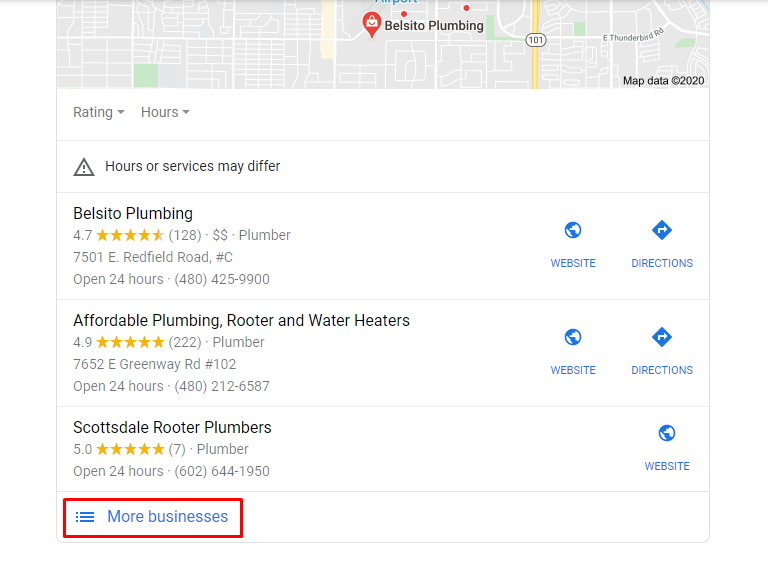
Give Stuff Away For Free
Earlier in the guide, we mentioned that a good way to build your portfolio is by offering free local SEO to your first few “clients” in exchange for a referral or testimonial. Now, we’re not saying that you have to offer free services every time you want to drum up business, but there’s an important takeaway here: people usually won’t pass up an opportunity to get free stuff…even if they have to give something in return.
To get a lead, what are you willing to offer? Free resources, like ebooks and webinars, are a great lead generation tactic. How about a free audit, or a free tool? Even a discount (which is like giving away part of your services for free) will do. Your imagination’s the limit!
Partner With Other Marketing Agencies
This might seem like we’re asking you to work with the competition, but hear us out. Your agency tackles just one part of the marketing puzzle: local SEO. Other agencies might specialize in social media marketing, pay-per-click advertising, content creation, and other services that you don’t offer. These agencies aren’t your competition – they’re potential partners.
These partnerships are mutually beneficial. If they have a client who wants local SEO, they’ll refer them to your agency, and vice-versa. There’s no cannibalization of clients, and you’ll get way more leads than you would without the partnership.
Generally, you’ll have to pay a small commission whenever you get a referral from your partner agency. It’s a small price to pay for a sale. Plus, you’ll also get a finder’s fee whenever one of your clients signs on with them.
Just be careful about who you partner with because it’s a reflection of your business. If your partner agency does a bad job, your name is on the line as well since you were the one who referred them. Unsatisfied clients might run to you for their complaints, or they might even terminate your contract with them if the experience was negative enough.
Offer Referral Bonuses
In the same way that you can partner with other businesses for referrals, you can partner with your clients, friends, and relatives for them as well.
Your clients are your biggest advocates. They already know how you work, and they know that you can deliver results. If you do a good job, then they’ll usually be more than happy to refer you to their friends, family, and other businesses. Offer a discount or additional services in exchange for every successful referral.
If someone who isn’t a client gives you a referral, you can still reward them in some way. Offer a small commission or finder’s fee if they connect you with a lead. You technically don’t have to do this, but it’s a nice way of incentivizing it. You also never know if they’ll become a client down the line (or send more clients your way), so being generous and building those relationships can’t hurt.
Put Your Name On Client Sites
Remember when we said that you should do marketing for a few clients for free? Well, just because you’re not earning cash for your efforts, it doesn’t mean that you can’t “cash in”.
When you do anything for free or a significantly reduced price, include an extra clause in the agreement: if they get the rankings/results they want, they have to link to your site from their home page and/or listing. It’s a small gesture on their part, but it could signal-boost your work to prospective clients.
Just make sure that you add a no-follow tag to the link so that search engines don’t mistake it as an effort to manipulate the algorithm.
Lurk On Forums
Social media has gone well behind things like Facebook and Twitter. Forums like Quora and Reddit are gold mines for potential clients and industry insights, if you know how to use them effectively.
People turn to forums when they have a specific question that needs an answer. Follow forums within your niche, engage with the community, and answer questions. This isn’t a direct sales tactic, but it’s a good way to lead with value and develop relationships with potential clients.
You should also be scouring forums for questions on search engine optimization which you, as an SEO professional, have the expertise and authority to answer. Again, remember that this isn’t a direct sales tactic; you don’t want to push your services in every answer, and indeed many forums won’t allow such conduct. But if your name shows up in enough answers, people will start associating your name with quality SEO, and you’ll be the first to come to mind when they’re looking for a local marketing agency.
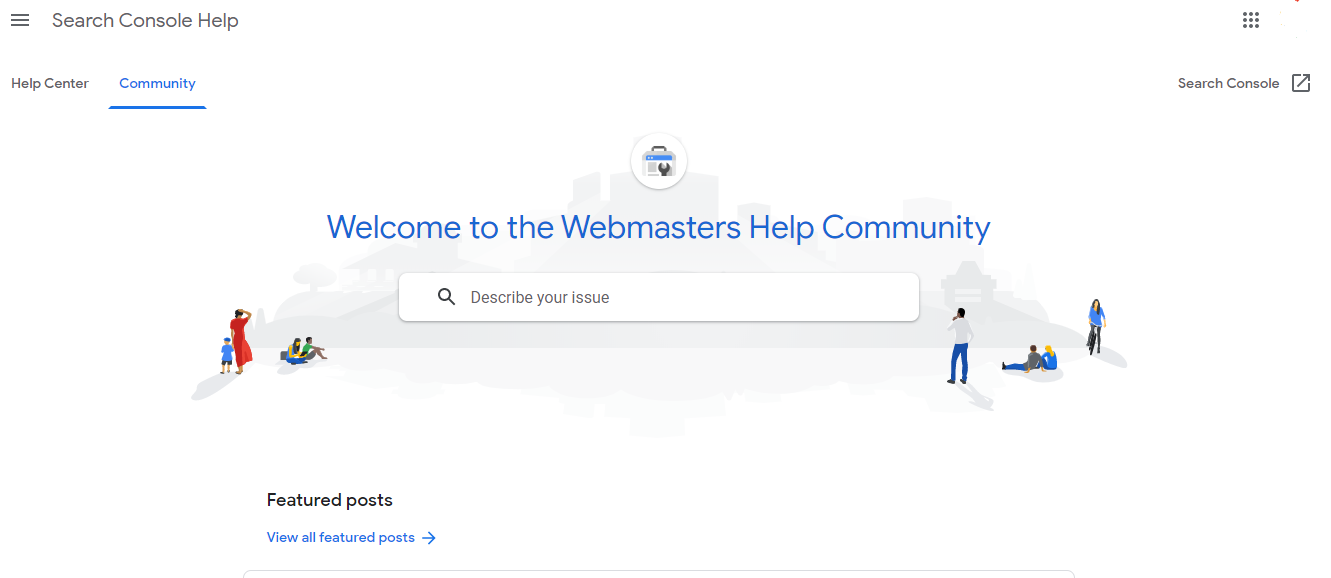
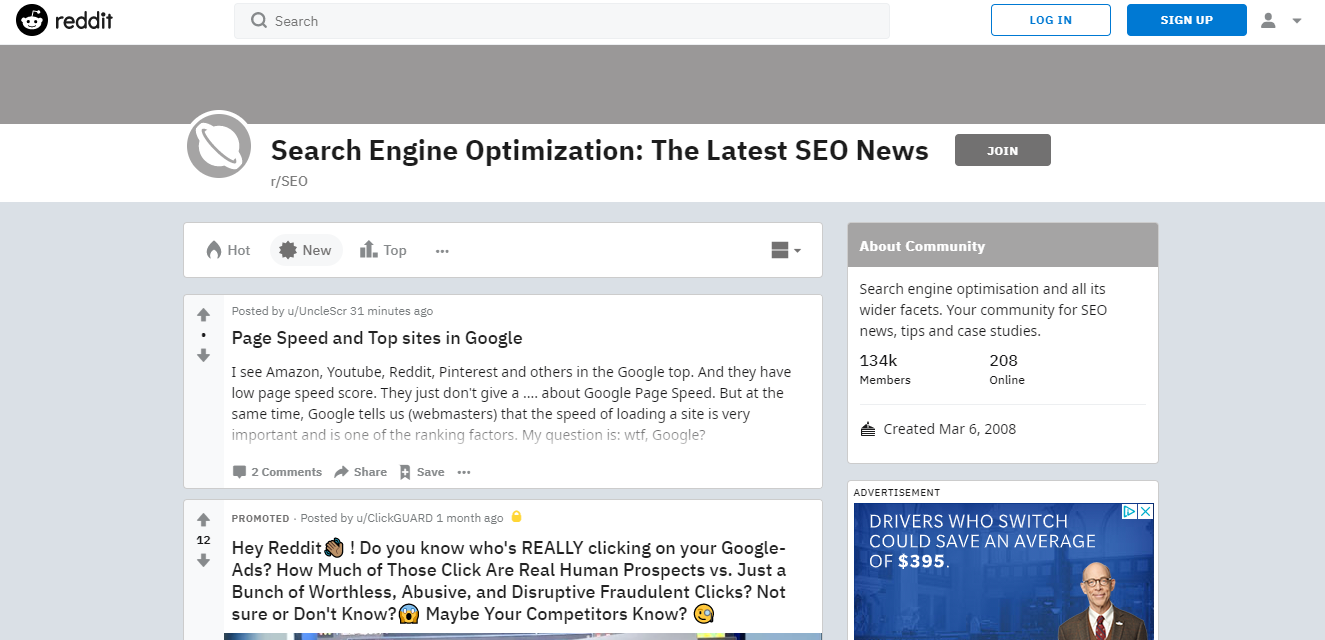
Expand Your Services By White Labeling
Most businesses want a one-stop-shop for their marketing because having to deal with multiple agencies for social media management, PPC, SEO, and PR is a hassle. By finding a way to offer different marketing services under your brand, you expand your potential client base to include businesses that may not have otherwise given you a second thought.
So how can your agency have it all without doing it all? Instead of shifting to an all-around marketing agency, you can achieve the same effect by hiring freelancers and white-labeling their services. Once you’ve grown big enough, you can also look for wholesale and outsourced SEO companies that can process work for and even manage your client load. You don’t have to worry about the additional overhead costs, you and the white-labeled freelancer both get additional income, and your client gets everything they need in one place.
Start A Blog Or Podcast
People trust the names they know. If you are established as an authority in your field, your clients will seek you out for your expertise. All you need to do is continue creating content that demonstrates your knowledge and experience, like a blog, webinar, or podcast.
And if your audience wants to learn more beyond your podcast/blog/webinar, offer additional content if they sign up on your website. You can also partner with an organization or association that hosts events to do a sponsored webinar. You’ll gain access to their audience, including email addresses. This is an effective and relatively easy way to build an email list.
Send Cold Emails
Yes, cold emailing isn’t dead yet! A lot of agencies still use this tactic to land guest posts, strike up partnerships, and reach out to potential leads. But cold emailing is tedious, and it takes up precious time that you could use on other, more important things.
The solution? Get someone else to do your cold emailing for you. Outsource it to a virtual assistant, use a cold emailing tool, or hire an outside agency that specializes in email outreach. These options are usually quite affordable, so they won’t put a huge dent in your budget.

Stage #5: Retaining Clients
You spend more money attracting new clients than retaining the ones you have. If you want your marketing business to be sustainable, you need to work on retaining clients as much, if not more, than you work on acquiring new ones. In this section, we’ll guide you through a few strategies that will help you foster client loyalty and generate more revenue.
No client-agency relationship is going to last forever. You want to make sure that it lasts as long as possible while still meeting the needs of the client, but there will eventually come a day where one or both of you will decide to move on. When forecasting future revenue, you should always account for client drop-off, even while doing your best to retain as many clients as possible.
Learn How To Explain The Value Of SEO
If you’re talking to someone who has an SEO background or is in the industry, they understand perfectly well how higher rankings can benefit businesses. But to your clients, higher rankings don’t have an economic value to them. They don’t care about their rank unless it has some real, tangible benefit.
Your job is to connect the dots for them. When you’re reporting on your successes, rank shouldn’t be your only focus. Talk about KPIs that they understand, and spell out what it means for them. For example, focus on lead generations or conversions like calls, website visits, and driving directions. And make sure you explain it in terms they understand, so avoid jargon like “meta-tag” and “alt text”.
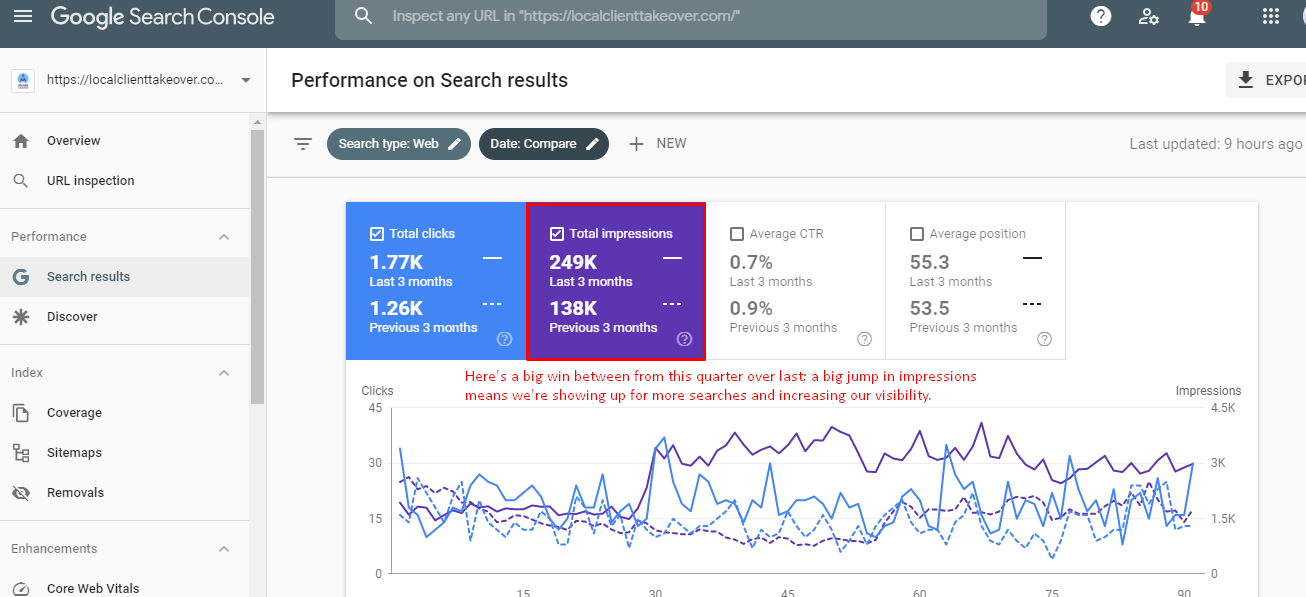
On the other hand, reporting on intensive goals like these isn’t going to do much for your clients. Focus on what your clients need to know in order to prove the value of your services. Things like traffic increases through link building efforts and visibility improvements from on-site or GMB optimization are things that you can easily correlate to increased calls and revenue for a business.
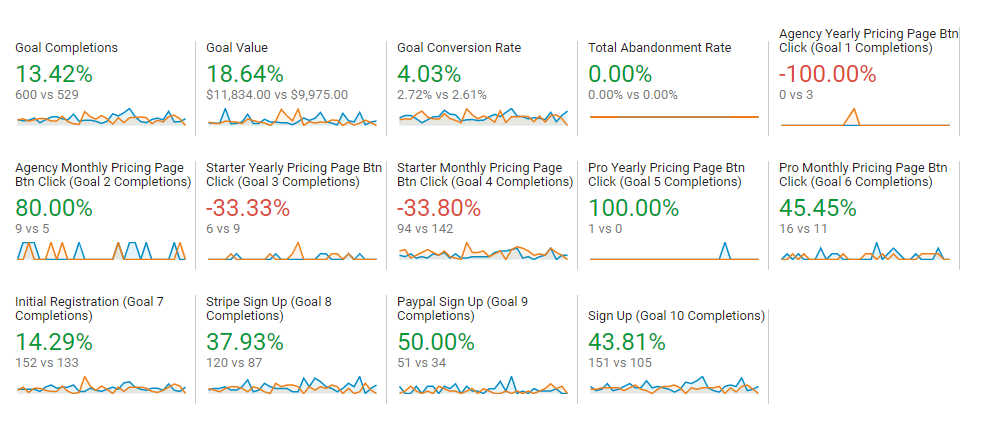
Communicate With Your Clients
When agencies struggle with client retention, it’s usually not because of the quality of work. Clients may feel that they’re not being heard, that you don’t care or know enough to answer their questions, or that you’re just too difficult to get in touch with. More often than not, poor client communication is what loses business for agencies.
Improving your client communication can drastically improve your retention rates. Make time to talk to your clients regularly and provide them updates and progress reports. Explain what you’ve been doing for their site or listing so that you’re always on the same page. Encourage them to ask questions or express their concerns. And above all, make sure that you listen. This is your client’s business, their livelihood, and it may be the first time that they have trusted an agency to handle their SEO. Don’t invalidate their concerns, address them. Be transparent, be proactive, and be patient.
Track & Report Your Progress
Although we touched on this a little in the previous point, reporting is such an essential part of SEO that we want to talk about it separately. Client reporting meetings are the only space you have to “prove” that you’re worth your client’s marketing spend.
This is where learning how to communicate the value of SEO is really going to pay off. You can be getting amazing results, but they won’t matter if your client doesn’t understand what those results mean for their business. They’ll think they’re wasting their money. The same can be said of negative results. If you aren’t able to properly explain why certain results have occurred and what you’re doing about them, your client might very well think that you don’t know what you’re doing.
Client reporting tools help you consolidate important data points and present them in an easy to understand format. Keep your reports short but comprehensive. Be liberal with your visuals; it’s easier to understand a graph than it is to read paragraphs of data.

Drive Results
Last, but not least, you still need to perform well if you want to keep your clients. It’s okay for your campaigns to take a while to ramp up, and it’s okay for one or two metrics to occasionally drop off. But no client will stay with an agency that demonstrates a negative trend month over month.
If you’ve just started a new campaign, simply explain to your client that it takes time to see results. But if you’re well past that point and the numbers aren’t improving, you need to look into why that is. Test your theories, try new strategies, and come up with a detailed action plan to attack the root of the issue. SEO isn’t always as clear cut as you imagine it will be, and you shouldn’t be afraid to go back to the drawing board from time to time.

Other Tips & Strategies
Be In It For The Long Haul
Don’t expect your local marketing agency to immediately be a success. You should have been working on your own marketing while growing your agency to take on new local marketing prospects, so you should know that you’re not going to get to the top of the game overnight. In the same way that it takes a while for your campaigns to yield results, it will take some time before your own business will stabilize. As long as it takes to balance out, it will take even longer for you to profit, and even longer for you to make it to six figures.
But it is possible – you just need to keep working at it. The more time and effort you invest in your agency, the closer you get to hitting your goals. You will struggle a bit, but nothing worth having is easy.
Replicate & Innovate
There’s nothing wrong with looking at more established agencies to understand why they’re successful and trying to replicate that success. There’s a lot to be learned from your more successful competition. But if you want to get on the same level, you can’t just do the same thing that they’re doing.
Reverse-engineering will tell you what works. Then, when you’ve got that down, it’s time to push the envelope and challenge ideas. Innovate the way only your agency can, and like-minded clients will flock to you.
Learn A Bit About Bookkeeping
Earlier in the guide, we said that you should have an accountant to manage your finances. Having an expert look over your books is how you minimize errors and identify opportunities to save. But it doesn’t hurt to keep track of your finances on your own, especially since you’re making most of the financial decisions.
You don’t have to be a CPA to do this. Even a simple spreadsheet tracking your income and expenses can make a huge difference. Or you can use an invoicing/accounting software – just input the numbers, and it does all the computing for you.
Hire Someone For Customer Service
A big part of marketing is client relations, so it would be wise to invest in some kind of customer support. This can be as “simple” as enabling a live chatbot on your website/social media profiles so that potential clients can get additional information when they need it.
If you have the funds, however, we recommend hiring a customer relations rep or outsourcing it to a call center. It’s always better to have a live person who’s always ready to answer questions rather than resorting to lengthy back-and-forths over email.
Create Packages
Your clients have varying budgets, even if they are in the same industry. To get more business, you need to find a way to cater to as many of your potential clients as possible. Before you consider lowering your rates, take a look at what other adjustments or additions you could make to your existing services to meet the needs of these clients.
Some clients want all the bells and whistles and trust you to handle the work accordingly. Others will be hesitant to go all in and will want the bare minimum. You should have a sliding scale with varying levels of offerings. For example, you could have four packages at $1,000, $2,000, $5,000, and $10,000.
Obviously, the more the client is willing to pay, the more services you throw into the package. The cheapest package could just be basic GMB optimization, while more expensive ones can include link building, penalty removal, and more.
Keep Learning SEO
Search engine optimization is constantly changing and evolving with the algorithm. What SEO looked like five years ago – heck, what it looked like last year – is very different from what it looks like now. Some techniques no longer work, and there are previously-safe tactics that could get you penalized today.
If you want your local marketing agency to succeed, it needs to learn and adapt to these changes. Stay on top of the best SEO practices by going to industry conferences, doing research, and talking to other professionals. One of the worst things that you can do for your agency is to assume that you know everything you need to about SEO and inbound marketing strategies, only to have the industry grow and change around you.
Know How To Forecast Your Future
Running a business isn’t just about keeping it afloat, it’s about planning for future success. After all, you don’t want to stay stagnant, you want to grow and make more money. If you want to scale up, you need to balance your books and hit your goals.
This is why you should always start your local marketing agency with a business plan (or something like it). The business plan lays out your timeline and objectives. You should also keep track of your books to see if you can afford the expansion; otherwise, you might make rash decisions that negatively impact your business.

Conclusion
Starting your own marketing agency is hard work, but it’s also extremely rewarding. This guide goes over many important factors to consider if you want to start your own local marketing agency, but it is by no means the definitive resource in the industry. Test what works for you, strategize solutions to meet the needs of your clients and still turn a profit, and grow your agency based on what works best for you. If you keep at it long enough, plan ahead, and drive results, you’ll establish yourself as a force to reckon with in the SEO industry.
The post How To Start A Local Marketing Agency appeared first on Local Client Takeover.

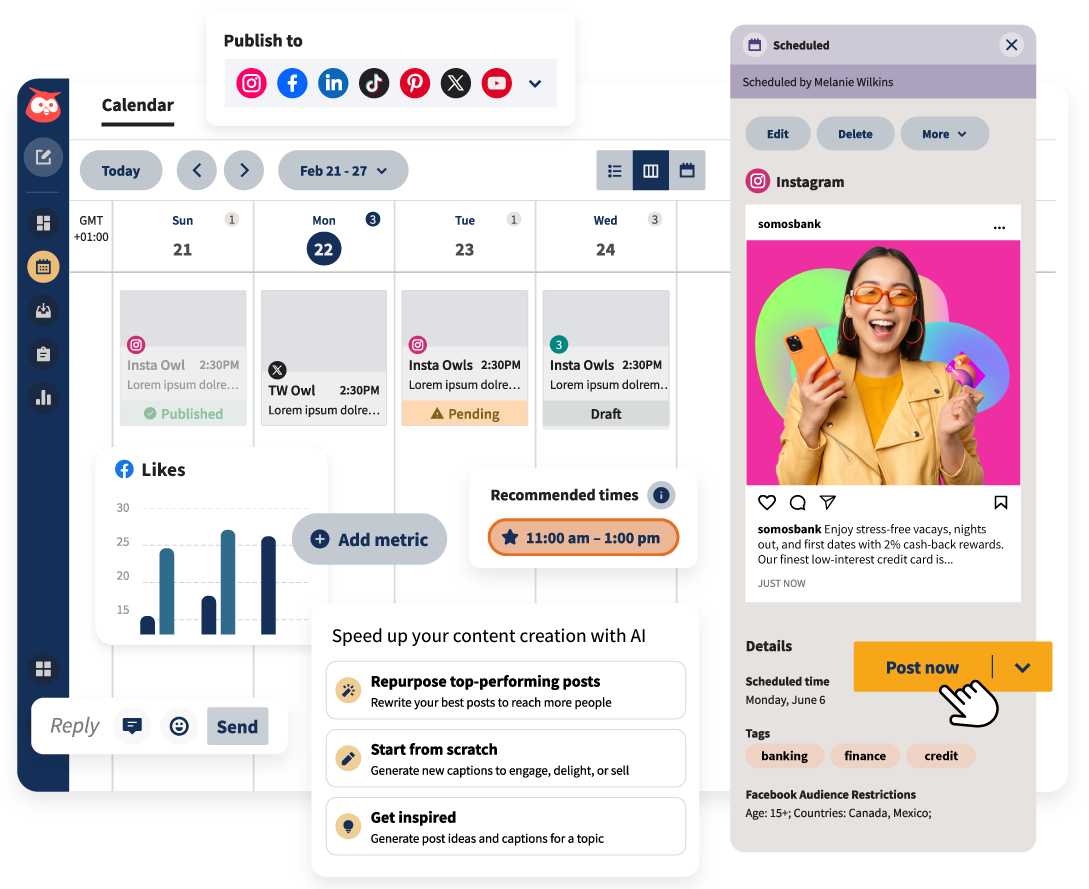


Recent Comments